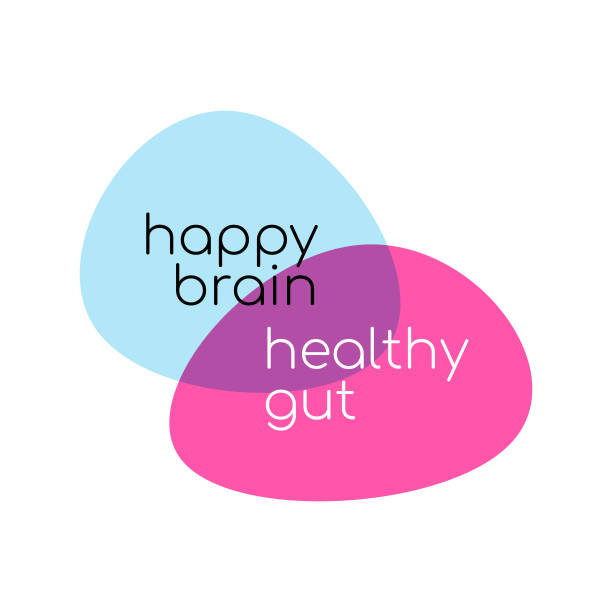Introduction
The intricate relationship between our gut and brain, known as the gut-brain connection, has become a significant focus in both medical and psychological research. This fascinating link reveals how our digestive health can influence our mood, mental health, and overall well-being. By exploring the science behind this connection, we can better understand how to nurture both our gut and brain for optimal health.
The Gut-Brain Axis
The gut-brain axis refers to the complex communication network that links the central nervous system (CNS) with the enteric nervous system (ENS), which governs the functioning of the gastrointestinal tract. This bidirectional communication system involves neural, hormonal, and immune pathways, highlighting the profound impact of gut health on brain function and vice versa.
Understanding the Microbiome
Our gut is home to trillions of microorganisms, collectively known as the gut microbiome. These bacteria, viruses, and fungi play a crucial role in digestion, immune function, and even the production of neurotransmitters. The balance of these microbes is essential for maintaining both physical and mental health, with imbalances often linked to various health issues, including mood disorders.
RELATED: The Colorful World of Coral Reefs: Why They’re Important and How We Can Protect Them
Role of Neurotransmitters
Neurotransmitters are chemical messengers that transmit signals between nerve cells. Many of these, such as serotonin and dopamine, are produced in the gut. Serotonin, often dubbed the “happy hormone,” is primarily found in the gut, where it regulates mood, sleep, and appetite. An imbalance in gut bacteria can disrupt the production of these neurotransmitters, leading to mood fluctuations and mental health disorders.
Gut Health and Anxiety
Research has shown a strong link between gut health and anxiety. An imbalance in gut bacteria, known as dysbiosis, can lead to increased levels of stress hormones and inflammation, both of which are associated with anxiety. By improving gut health through diet and lifestyle changes, it is possible to alleviate anxiety symptoms.
Depression and Digestive Health
Similarly, there is a significant connection between depression and digestive health. The gut produces a large proportion of the body’s serotonin, and disturbances in gut microbiota can affect serotonin levels, contributing to depression. Studies have found that individuals with depression often have different gut microbiota profiles compared to healthy individuals.
Impact of Diet on Gut and Mood
What we eat profoundly affects our gut health and, consequently, our mood. Diets high in processed foods, sugar, and unhealthy fats can disrupt gut bacteria balance, leading to inflammation and mood disorders. Conversely, a diet rich in fiber, fruits, vegetables, and fermented foods can promote a healthy gut microbiome and improve mental health.
Probiotics and Mental Health
Probiotics, which are beneficial bacteria, can help restore balance to the gut microbiome. Studies have shown that probiotics can reduce symptoms of anxiety and depression by improving gut health. Incorporating probiotic-rich foods like yogurt, kefir, and sauerkraut, or taking probiotic supplements, can be a beneficial strategy for enhancing mental well-being.
Prebiotics: Feeding Your Gut
Prebiotics are non-digestible fibers that serve as food for probiotics. They are essential for maintaining a healthy gut microbiome. Foods rich in prebiotics include garlic, onions, leeks, asparagus, and bananas. By including these foods in your diet, you can support the growth of beneficial bacteria, which in turn can improve mood and cognitive function.
The Vagus Nerve: A Communication Pathway
The vagus nerve is a critical component of the gut-brain axis, acting as a major communication highway between the gut and the brain. This nerve helps regulate inflammation and controls the gut’s immune response. Stimulating the vagus nerve through activities like deep breathing, meditation, and cold exposure can enhance gut health and promote mental calmness.
Gut Inflammation and Mood Disorders
Chronic gut inflammation has been linked to mood disorders such as anxiety and depression. Inflammation can result from poor diet, stress, and infections, disrupting the gut microbiome and affecting brain function. Anti-inflammatory diets, rich in omega-3 fatty acids, antioxidants, and whole foods, can help reduce inflammation and support mental health.
Stress and the Gut-Brain Connection
Stress is both a cause and a consequence of poor gut health. When stressed, the body releases hormones that can alter gut motility and increase inflammation. This can lead to symptoms such as irritable bowel syndrome (IBS), which further exacerbates stress and anxiety. Stress management techniques like mindfulness, yoga, and regular exercise can positively impact gut health and mood.
Sleep, Digestion, and Mood
Quality sleep is vital for both gut and brain health. Poor sleep can disrupt the gut microbiome, leading to issues like leaky gut and increased inflammation, which negatively affect mood. Conversely, a healthy gut can promote better sleep by regulating the production of sleep-related neurotransmitters. Establishing a regular sleep routine and creating a sleep-friendly environment can significantly improve both digestion and mood.
Exercise: A Dual Benefit
Regular physical activity is beneficial for both gut and mental health. Exercise can enhance the diversity of gut microbiota, reduce inflammation, and increase the production of mood-boosting neurotransmitters. Activities like walking, jogging, and strength training can help maintain a healthy gut-brain connection.
Hormonal Influence on Gut Health
Hormones play a significant role in gut health. Fluctuations in hormones like cortisol, estrogen, and progesterone can affect gut motility and microbiota balance. Understanding the hormonal impact on digestion can help in managing mood swings and digestive issues, especially during life stages like puberty, pregnancy, and menopause.
The Role of Hydration
Staying hydrated is crucial for maintaining gut health. Water helps in the digestion and absorption of nutrients and supports the gut lining. Dehydration can lead to constipation and negatively impact the gut microbiome, affecting mood and cognitive function. Drinking adequate water throughout the day is essential for both digestive and mental health.
Medications and Their Impact
Certain medications, including antibiotics, antidepressants, and anti-inflammatory drugs, can alter the gut microbiome. While these medications are necessary for treating various conditions, they can disrupt gut health and affect mood. It is important to manage medication use under medical guidance and support gut health through diet and probiotics.
Natural Remedies for Gut Health
There are numerous natural remedies to support gut health, including herbal supplements like ginger, peppermint, and chamomile, which can soothe the digestive tract. Incorporating these remedies into your routine, along with a balanced diet, can enhance gut function and improve mood.
Building a Gut-Friendly Lifestyle
Creating a gut-friendly lifestyle involves a holistic approach to health. This includes eating a balanced diet, staying hydrated, exercising regularly, managing stress, and getting adequate sleep. By prioritizing these aspects, you can maintain a healthy gut-brain connection and improve overall well-being.
FAQs
What is the gut-brain axis?
The gut-brain axis is the communication network that links the central nervous system with the enteric nervous system, involving neural, hormonal, and immune pathways.
How do neurotransmitters affect mood and digestion?
Neurotransmitters like serotonin and dopamine, produced in the gut, regulate mood, sleep, and appetite. An imbalance can lead to mood disorders and digestive issues.
Can probiotics improve mental health?
Yes, probiotics can help restore gut microbiome balance, reducing symptoms of anxiety and depression and promoting mental well-being.
What foods are good for gut health?
Foods rich in fiber, prebiotics, and probiotics, such as fruits, vegetables, whole grains, yogurt, and fermented foods, are beneficial for gut health.
How does stress affect the gut-brain connection?
Stress can alter gut motility and increase inflammation, leading to digestive issues like IBS and exacerbating mood disorders. Stress management techniques can improve gut health and mood.
What natural remedies support gut health?
Herbal supplements like ginger, peppermint, and chamomile, along with a balanced diet, hydration, and regular exercise, can support gut health and enhance mood.
Conclusion
Understanding the gut-brain connection opens up new avenues for improving both physical and mental health. By focusing on gut health through diet, lifestyle changes, and natural remedies, we can positively influence our mood and overall well-being.


